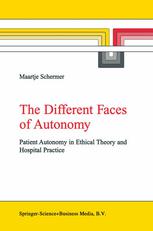

Most ebook files are in PDF format, so you can easily read them using various software such as Foxit Reader or directly on the Google Chrome browser.
Some ebook files are released by publishers in other formats such as .awz, .mobi, .epub, .fb2, etc. You may need to install specific software to read these formats on mobile/PC, such as Calibre.
Please read the tutorial at this link: https://ebookbell.com/faq
We offer FREE conversion to the popular formats you request; however, this may take some time. Therefore, right after payment, please email us, and we will try to provide the service as quickly as possible.
For some exceptional file formats or broken links (if any), please refrain from opening any disputes. Instead, email us first, and we will try to assist within a maximum of 6 hours.
EbookBell Team

4.7
76 reviewsPatient autonomy is a much discussed and debated subject in medical ethics, as well as in healthcare practice, medical law, and healthcare policy. This book provides a detailed and nuanced analysis of both the concept of autonomy and the principle of respect for autonomy, in an accessible style. The unique feature of this book is that it combines empirical research into hospital practice with thorough philosophical analyses. As such, it is an example of a new movement in applied ethics, that of 'empirical ethics'.
The key themes are informed consent and medical decision making, personal well-being, competence, paternalism and decision making for incompetent patients. Much attention is also devoted to autonomy in non-decision making situations - patient control over small everyday aspects of care, authenticity and existential aspects of illness, autonomy and the 'ethics of care', and the relationship between autonomy and trust in the physician-patient relationship.
This book will be of interest to those working or studying in the field of medical ethics and applied ethics but also to healthcare professionals and health policy makers.